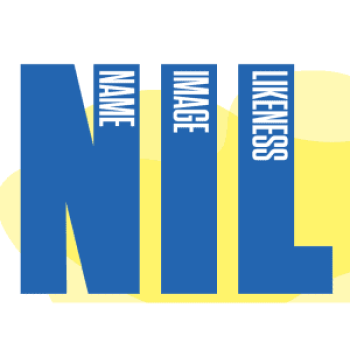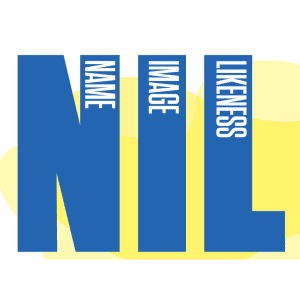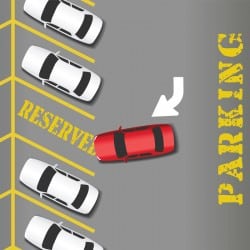NIL collectives have been on the rise since the NCAA made the biggest change ever in college athletics: in July 2021, they adopted interim rules permitting student-athletes the ability to benefit from their name, image and likeness, also known as “NIL.” This was an unprecedented move by the NCAA, which had historically prohibited athletes from receiving any compensation in connection with their “NIL.”1
While “pay-for-play” is still prohibited by the NCAA,2 these new rules have opened the door for college athletes to explore a new world of sponsorships, endorsements and compensation. For example, college athletes can now earn money for commercials, appearances, speeches, social media posts, hosting sports camps, giving lessons, writing books and more — all without violating NCAA rules.
“NIL collectives” have emerged as the chief brokers of these opportunities. This article discusses what NIL collectives are, their legal forms of organization, and the regulatory framework that governs them.
How are NIL Collectives Structured?
NIL collectives are entities that are structurally independent of a school, yet fund NIL opportunities for the school’s student-athletes. They are typically founded by well-known alumni and supporters of the school. Collectives generate and pool revenue raised through contributions from a wide variety of sources, including boosters, businesses, fans and more. They use these funds to create opportunities for student-athletes to leverage their NIL in exchange for compensation.
While a number of NIL collectives have been formed as for-profit entities,3 in a growing number of cases, they have been formed as nonprofits. Numerous nonprofit collectives have, in turn, sought and obtained 501(c)(3) public charity status from the IRS, which potentially allows donors to receive a tax-deduction for their contribution to the collective.4
Tax-exempt collectives typically use student-athletes as independent contractors to help further their charitable mission. For example, some provide in-kind contributions of a student-athlete’s services to other charities, including speaking, appearances and other public relations services that help expand the charities’ reach and visibility in their communities. The student-athlete is paid by the tax-exempt collective to provide the services, while the other charities receive these services on a pro bono basis.
Special Rules Governing Tax-Exempt NIL Collectives
Collectives that obtain tax-exemption should be mindful of special rules that apply to tax-exempt entities. These rules are enforced not only by the IRS, but also by State Attorneys General, whose responsibility is to ensure that charitable funds are used for charitable purposes. These rules require that tax-exempt cooperatives operate differently from the typical NIL collective.
For example, NIL collectives commonly facilitate endorsement, merchandising and marketing deals that allow for-profit companies to promote their products and services using a student-athlete’s NIL, which helps these for-profit companies increase business and revenues. Many NIL collectives have the flexibility to promote such commercial interests due to their structure as for-profit (and therefore, taxable) entities.
However, facilitating commercial deals does not constitute a permissible purpose for a charitable, tax-exempt organization. Therefore, if a tax-exempt NIL collective engages in such activity, revenues from this activity could be taxed by the IRS as unrelated business income – i.e., income from a trade or business, regularly carried on, that is not substantially related to the collective’s charitable mission.
Also, if the IRS finds that these commercial activities constitute a primary or substantial non-exempt purpose of the organization, the IRS could revoke its tax-exempt status.5 State Attorneys General could bring enforcement actions for similar reasons. Therefore, if a tax-exempt collective facilitates marketing or similar NIL arrangements, it should generally avoid arrangements promoting goods and services of for-profit companies. However, it could use the NIL of student-athletes to help promote and amplify the charitable missions of nonprofits serving communities.6
NIL collectives are also becoming well-known for offering lucrative compensation to student-athletes in connection with promotional deals. For many collectives, their status as for-profit entities give them the flexibility to do so.
But, in the context of a tax-exempt collective, these payments must be reviewed carefully to ensure they do not constitute “excessive compensation” for federal tax law purposes. NIL collectives should therefore carefully structure athletes’ compensation in accordance with IRS rules to ensure it does not exceed fair market value. Failure to do so could put the collective at risk of losing its tax-exemption, and lead to potential enforcement actions by State Attorneys General.
However, it should be noted that even if such compensation is determined to be reasonable, a tax-exempt NIL collective could nevertheless lose its exemption if the IRS determines that its primary or substantial purpose is to pay or recruit student-athletes. For this reason, it’s important that tax-exempt collectives work closely with legal counsel to ensure they have well-constructed charitable programs.
Given the risks outlined above, an NIL collective seeking tax-exempt status should carefully consider whether any of its time and resources will be spent on pursuing commercial (non-exempt) activities. Collectives considering such activities should consult with counsel to reconsider its structural options, and discuss whether it would be advisable to create a for-profit subsidiary to house any commercial activity.
NCAA Interim Rules
Aside from understanding the regulatory framework discussed above, NIL collectives (no matter their legal form) should have an understanding of the NCAA rules which, as of the time of this writing, consist of interim rules adopted in July 2021. These interim rules will remain in effect until federal legislation creates a national standard (which is what the NCAA is calling for), or until new NCAA rules are adopted. While the purpose of the interim rules is to suspend NCAA restrictions on athletes’ profiting off their NIL, the rules maintain certain guardrails to prevent “pay-for-play” and similar arrangements. Subject to state law, the following is prohibited under the interim rules:
- NIL opportunities cannot be used as a recruiting tool for prospective student athletes. Such an action is considered an “improper recruiting inducement.” Therefore, NIL collectives should refrain from making offers of NIL opportunities contingent upon a student-athlete’s enrollment at a particular school.
- As discussed above, NIL arrangements that constitute “pay-for-play” are also prohibited. This rule prohibits any kind of arrangement that constitutes compensation in exchange for a student-athlete’s participation or performance in college athletics.
- NIL agreements should be specific about the NIL work being performed by the athlete in exchange for compensation, and such compensation should be paid only for work performed. Such compensation must be determined through an independent analysis, based upon the facts of each specific case and the value each athlete offers to an NIL arrangement.
- The NCAA interim rules prohibit compensation from any school in exchange for the use of a student athlete’s name, image or likeness. In addition, schools may not direct how student-athletes use NIL compensation. (For example, schools may not require a student-athlete to use NIL compensation for financial aid.) Athletic department staff are not allowed to represent student-athletes in marketing their athletic ability or reputation. They also may not communicate with a recruit on behalf of an NIL collective. In addition, such staff may not facilitate a meeting between an NIL collective and a student-athlete, including, for example, by sharing a recruiting list or watch list.
State Laws and School Policies
As noted above, the NCAA’s interim rules are subject to state law, which varies depending on the state.7 Therefore, NIL collectives should take steps to ensure compliance under any applicable state law, including any state law that applies to the collective, the school where the student-athlete is enrolled, as well as the state where the NIL activity will take place.
The collective should also look at any specific NIL policies established by the college.
Both state laws and school policies may include reporting requirements that NIL collectives should be aware of, and some state laws prohibit athletes from entering into a contract that conflicts with the student-athlete’s team contract.
Understanding the regulatory framework governing NIL collectives will help avoid missteps that can lead to punitive actions by the IRS, NCAA or State Attorneys General, or scrutiny from Congress, which has also taken an interest in these entities. As the NIL’s regulatory environment continues to evolve, it is incumbent on both collectives and student-athletes to take affirmative steps, including consulting with legal counsel, to ensure compliance.
1 This dramatic shift by the NCAA also came on the heels of its loss before the U.S. Supreme Court in NCAA v. Alston 141 S. Ct. 2141 (2021). Though NIL compensation was not the subject of this case, Justice Kavanaugh wrote a concurring opinion which suggested that the NCAA’s NIL compensation rules could be in violation of antitrust laws, and stated that “the NCAA is not above the law.” The NCAA’s change also follows action by numerous states that, since 2019, had led the way in creating NIL rights for student athletes.
2 As discussed later in this article, “pay-for-play” refers to any kind of arrangement that constitutes compensation in exchange for a student-athlete’s participation or performance in college athletics.
3 Other legal forms taken by NIL collectives have included formation as for-profit limited liability companies (“LLCs”), which provides more flexibility in a number of ways. For example, unlike tax-exempt nonprofits, for-profit LLCs are not subject to a cap on what’s considered reasonable compensation. They may therefore offer student-athletes NIL work at any compensation structure. For-profit LLCs are also not subject to limitations on the type of activities they can facilitate. Therefore, unlike tax-exempt entities, for-profit LLCs may facilitate NIL arrangements for student-athletes such as merchandising or endorsement deals which promote commercial activities. NIL collectives should consult with counsel to discuss the various pros and cons of these options.
4 On September 29, 2022, Senators John Thune (R-S.D.) and Ben Cardin (D-Md.) introduced the Athlete Opportunity and Taxpayer Integrity Act which, if passed, would “prohibit individuals and organizations from using the charitable tax deduction for specific contributions that compensate college or incoming college athletes for the use of their (NIL).” They argue that “(s)uch activity is inconsistent with the intended purpose of the charitable tax deduction, and it forces taxpayers to subsidize the potential recruitment of – or payment to – college athletes based on their NIL status.” As of the time of this writing, this federal legislation is the latest of more than a handful of NIL proposals introduced, but not yet passed, in Congress. Congress’ appetite for eventually passing NIL legislation is unclear, though these proposals do indicate that NIL collectives are facing increased scrutiny from Congress.
5 Regs. Sec. 1.501(c)(3)-1(e)(1) and Sec. 1.501(c) (3)-1(c)(1).
6 One example of this approach is discussed in the previous section – i.e., tax-exempt collectives that provide in-kind contributions of a student-athlete’s services to other charities to help them promote their charitable missions.
7 As discussed above, the NCAA is lobbying Congress for legislation that would create a national standard, and thereby pre-empt differing state laws.
- Perlman & Perlmanhttps://perlmanandperlman.com/author/nancyisrael/
- Perlman & Perlmanhttps://perlmanandperlman.com/author/nancyisrael/
- Perlman & Perlmanhttps://perlmanandperlman.com/author/nancyisrael/
- Perlman & Perlmanhttps://perlmanandperlman.com/author/nancyisrael/













